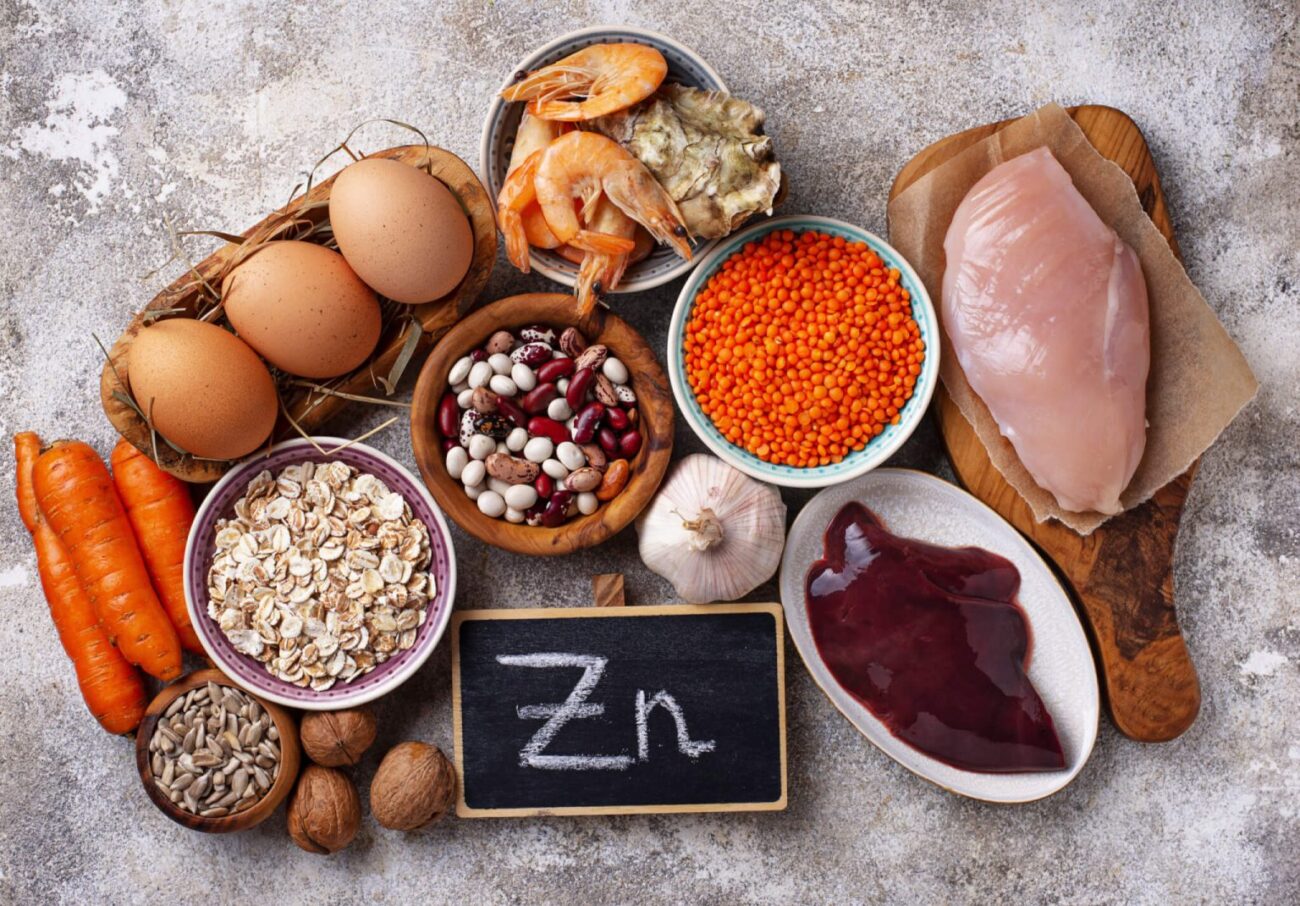Zinc is a vital mineral that plays a crucial role in maintaining overall health and well-being. Though it’s required in small amounts, zinc is involved in numerous bodily functions, from supporting the immune system to promoting wound healing and DNA synthesis. Despite its importance, many people are unaware of how essential zinc is or how to ensure they’re getting enough of it.
In this blog post, we’ll explore the role of zinc in the body, its health benefits, and how you can incorporate this powerhouse mineral into your diet.
The Role of Zinc in the Body
Zinc is a trace mineral, meaning the body needs it in small quantities, but its impact is significant. It acts as a cofactor for over 300 enzymes, facilitating various biochemical reactions. Here are some of the key roles zinc plays in the body:
- Immune System Support
Zinc is essential for the normal development and function of immune cells. It helps the body fight off infections and reduces the duration and severity of colds. - Cell Growth and Repair
Zinc plays a critical role in cell division, protein synthesis, and DNA repair, making it vital for growth, development, and tissue repair. - Wound Healing
Zinc is involved in collagen synthesis and inflammatory response, both of which are necessary for proper wound healing. - Sense of Taste and Smell
Zinc is crucial for the proper functioning of taste and smell receptors. A deficiency can lead to a reduced ability to taste or smell. - Antioxidant Properties
Zinc helps combat oxidative stress by stabilizing cell membranes and reducing the production of free radicals. - Hormone Regulation
Zinc is involved in the production and regulation of hormones, including insulin, thyroid hormones, and sex hormones like testosterone.
Health Benefits of Zinc
- Boosts Immune Function
Zinc is well-known for its immune-boosting properties. It helps activate T-cells, which are critical for fighting infections, and reduces inflammation, helping the body recover faster. - Supports Skin Health
Zinc’s anti-inflammatory and wound-healing properties make it effective in treating acne, eczema, and other skin conditions. It also helps maintain skin integrity and elasticity. - Promotes Brain Health
Zinc is essential for cognitive function and brain health. It plays a role in neurotransmission and may help protect against age-related cognitive decline. - Enhances Fertility and Reproductive Health
Zinc is crucial for reproductive health in both men and women. In men, it supports testosterone production and sperm quality, while in women, it aids in egg development and hormonal balance. - Supports Eye Health
Zinc is concentrated in the retina and helps maintain vision. It may also reduce the risk of age-related macular degeneration (AMD). - Aids Digestion
Zinc is necessary for the production of stomach acid and digestive enzymes, ensuring proper digestion and nutrient absorption. - Regulates Blood Sugar Levels
Zinc plays a role in insulin production and storage, helping to regulate blood sugar levels and reduce the risk of diabetes.
How Much Zinc Do You Need?
The recommended daily allowance (RDA) for zinc varies by age, gender, and life stage:
- Adult Men: 11 mg/day
- Adult Women: 8 mg/day
- Pregnant and Lactating Women: 11-12 mg/day
While zinc deficiency is rare in developed countries, certain groups are at higher risk, including vegetarians, pregnant women, older adults, and people with digestive disorders.
Best Dietary Sources of Zinc
Zinc is found in a variety of foods, both animal-based and plant-based. Here are some of the best sources:
- Animal-Based Sources
- Oysters (the richest source of zinc)
- Beef, lamb, and pork
- Chicken and turkey
- Fish and shellfish
- Eggs and dairy products (cheese, yogurt, milk)
- Plant-Based Sources
- Legumes (chickpeas, lentils, beans)
- Nuts and seeds (pumpkin seeds, cashews, almonds)
- Whole grains (quinoa, oats, brown rice)
- Fortified cereals
Signs of Zinc Deficiency
Zinc deficiency can lead to a range of health issues, including:
- Weakened immune function
- Delayed wound healing
- Hair loss
- Loss of appetite
- Impaired sense of taste and smell
- Skin rashes or acne
- Growth retardation in children
Zinc Supplements: When Are They Necessary?
While it’s best to get zinc from food, supplements can be helpful for those at risk of deficiency. However, excessive zinc intake can lead to side effects like nausea, headaches, and impaired immune function. Always consult a healthcare professional before starting supplements.

Zinc is a powerhouse mineral that supports nearly every aspect of health, from immunity and skin health to brain function and fertility. By incorporating zinc-rich foods into your diet, you can ensure your body gets the nutrients it needs to thrive. Whether you’re enjoying a plate of oysters or sprinkling pumpkin seeds on your salad, you’re taking a step toward better health.
Have you noticed the benefits of zinc in your life?
Share your experiences or favorite zinc-rich recipes in the comments below! 🌟

